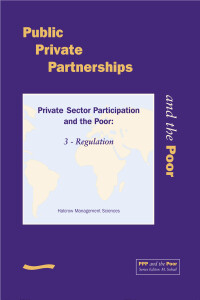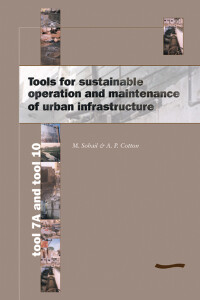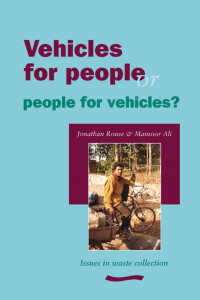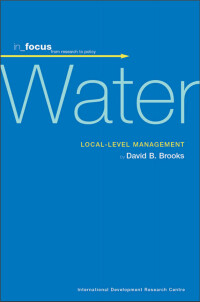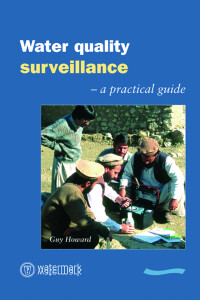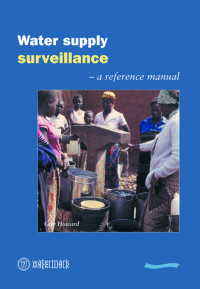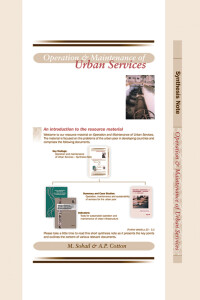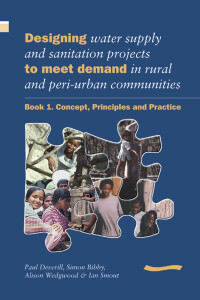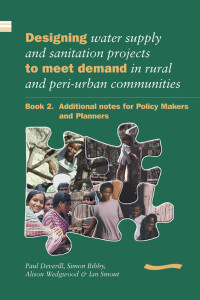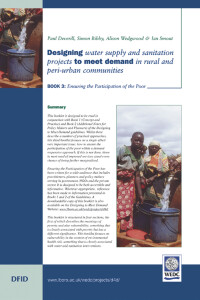Water, Sanitation and Hygiene
-
PPP and the Poor: Private Sector Participation and the Poor, 3 - Regulation
The purpose of the project Public Private Partnerships and the Poor in Water and Sanitation is to determine workable processes whereby the needs of the poor are promoted in strategies which encourage public-private partnerships (PPP) in the provision of water supply and sanitation services. One of t...
-
Tools for Sustainable Operation and Maintenance of Urban Infrastructure
This booklet is a supplement to the WHO monograph Tools for assessing the O&M status of water supply and sanitation in developing countries which comprises nine tools for measuring and evaluating the effectiveness of operations and maintenance (O&M) of water supply and sanitation services. The WHO t...
-
Vehicles for People or People for Vehicles?: Issues in Solid Waste Collection in Low-income Countries
The livelihoods of many thousands of poor people in low-income countries rely on collecting and recycling solid waste. Small waste collection vehicles (SWCVs) such as wheelbarrows and cycle carts play a vital role, enabling individuals to transport more waste, faster, further and with greater ease a...
-
Water Quality Surveillance
This guide is designed to help staff who undertake surveillance and monitoring of water supplies in developing countries. It provides simple information on how data may be collected and explains the use of equipment and inspection techniques. It also provides example forms that can be easily photoco...
-
Water Supply Surveillance: a reference manual
The result of a DFID/WHO project presenting guidelines on the implementation of water supply surveillance based on field experience in Uganda, Ghana and bangladesh. The guidelines provide a methodology for including poverty and vulnerability into suveillance planning and show how priority groups can...
-
Operation and Maintenance of Urban Services: A synthesis note
This synthesis note introduces other resource material availiable on the operation and maintenance (O&M) of urban services. Designed for policy-makers who need to optimize investments in services for the urban poor and professional staff employed in public utilities in developing countries, it also...
-
Designing Water Supply and Sanitation Projects to Meet Demand in Rural and Peri-Urban Communities: Book 1. Concept, principles and practice
These guidelines are the result of two years collaborative research undertaken by WEDC with partners in Africa and South Asia. They demonstrate how water supply and sanitation projects in rural and peri-urban areas can be designed to meet user demand. The aim is to improve the use and sustainability...
-
Designing Water Supply and Sanitation Projects to Meet Demand in Rural and Peri-Urban Communities: Book 2. Additional notes for policy makers and planners
These guidelines are the result of two years collaborative research undertaken by WEDC with partners in Africa and South Asia. They demonstrate how water supply and sanitation projects in rural and peri-urban areas can be designed to meet user demand. The aim is to improve the use and sustainability...
-
Designing Water Supply and Sanitation Projects to Meet Demand in Rural and Peri-Urban Communities: Book 3. Ensuring the participation of the poor
These guidelines are the result of two years collaborative research undertaken by WEDC with partners in Africa and South Asia. They demonstrate how water supply and sanitation projects in rural and peri-urban areas can be designed to meet user demand. The aim is to improve the use and sustainability...

